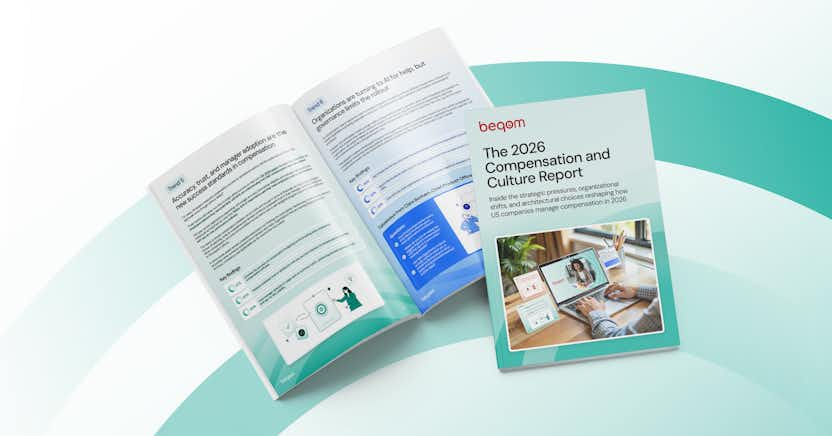Using Rewards to Drive Corporate Social Responsibility

Learn more about the following beqom products
Earth Day reminds us each year that we are dependent on our planet and environment for our quality of life and survival, and that we all have a responsibility to care for Mother Earth.
Individuals, businesses, and governments all share in that responsibility, but businesses may be in the best position to make a difference. Can rewards programs be used to drive social responsibility in a business?
Why should businesses be socially responsible?
Businesses arguably bear the greatest responsibility for protecting our environment. For one thing, they can do the most damage. Businesses, by virtue of the fact that they are our engines for producing goods and services, consume vast amounts of our natural resources and often produce waste, pollution, and greenhouse gasses as byproducts.
Individuals have limited power unless joined together. Governments can be slow, lacking in funds, or beholden to political winds or special interests. Businesses, on the other hand, can make decisions quickly, innovate to find solutions, and have a big impact owing to their size and reach.
The goals of being sustainable and profitable are not mutually exclusive, in fact they very often can be aligned. For example, if a business can reduce its energy consumption and its material usage, it also can reduce its costs. If it can deliver goods more efficiently, it can reduce its carbon footprint and also cut time-to-market, which ultimately benefits the bottom line.
Doing good to do well
Fortunately, research shows that companies that are socially responsible also perform better. Some reasons for this might be:
- It's good for the brand and image, which can result in higher consumer loyalty and sales.
- It's motivating for employees who would rather work for a firm with a good reputation (and, therefore, are more productive).
- It makes the company attractive to prospective employees so it can attract the best talent.
- It causes the company to be aware of current social issues and so potentially more attuned to the market.
- Sound ethical practices and policies result in a lower risk profile, making the company more attractive to investors.
- It’s an indicator of overall good governance.
Reputation may be a company’s most valuable intangible asset, and socially responsible behavior is one impactful way to establish and maintain a positive reputation and brand.
What can a company do?
Ethical theory recognizes different levels of corporate responsibility. Using environmental stewardship as an example, those levels are:
Legal. When you are simply complying with the law. In other words, you demonstrate legal responsibility when you are not doing anything illegal. You do it because you have to. Example: you abide by regulations that limit the amount of pollution you legally can release into the air or water.
Ethical. If you go a bit beyond that to ensure you're doing more than just the legal minimum, because you believe it’s the right thing to do, that's ethical behavior. Ethics is based on what society, or an individual, accepts as morally correct behavior. Example: you institute a recycling program to reduce waste.
Socially responsible. When you go above and beyond to strive to do good to benefit the larger society, that's socially responsible behavior. Example: you support your employees going into the community to plant trees or clean up a waterway.
Where do rewards come in?
The balanced scorecard concept can support such non-financial goals by attaching metrics to them, so you can measure progress. You can set emission goals that are stricter than the minimum legal requirements. You can aim to be carbon neutral within a fixed timeline, with targets along the way. You can set goals to reduce waste by a certain percentage each year. Those metrics can be tied to rewards for employees who are in a position to affect them.
A rewards platform can help companies achieve Environmental, Social, and Governance (ESG) goals by enabling flexible, targeted reward structures that drive the needed behaviors, by tying incentives to the achievement of ESG metrics. This trend is well underway. Research published in 2021 by London Business School and PwC found that 45 percent of the 100 largest U.K. companies had introduced ESG metrics into executive compensation plans,
Perillon listed 17 major U.S. companies that were linking executive compensation to ESG performance in 2021. For example, Apple announced it was going to link executive bonuses to performance with respect to the company’s social and environmental values, which include goals like removing carbon emissions from the business by 2030. Chipotle laid out metrics tied to such measures as sustainable farms, racial and gender pay equity, employee development, carbon emissions, and its food’s overall environmental impact.
Rewards enable a company to demonstrate commitment to its core values. Your incentives send a message to employees about what is important to your organization, and therefore how to get ahead. If you really want to achieve ESG goals, use your rewards platform to communicate those goals and the incentives associated with them. And then, reward those who help you achieve them.
Leading the way for a better world
Businesses that stand the test of time tend to exist for a reason other than making a profit. Kenneth Dayton, former CEO of Target, famously said, “We are not in business to make maximum profit for our shareholders. We are in business for only one reason—to serve society. Profit is our reward for doing it well. If business does not serve society, society will not tolerate our profits or even our existence.”
Of course, every (for-profit) business needs to be profitable to survive. But businesses have a large, powerful voice and with great power comes great responsibility. Even if you make, say, pencils, you can do it in the most environmentally responsible way; you can work to make your communities more livable; you can treat your employees with fairness and compassion; you can make kindness part of your decision-making process; you can have a vision for the world. So then making pencils is your way to make a positive difference in the world.
The right compensation management program can ensure that you have the ability to deliver effective, tailored rewards that will drive top performance and help you achieve ESG goals.







